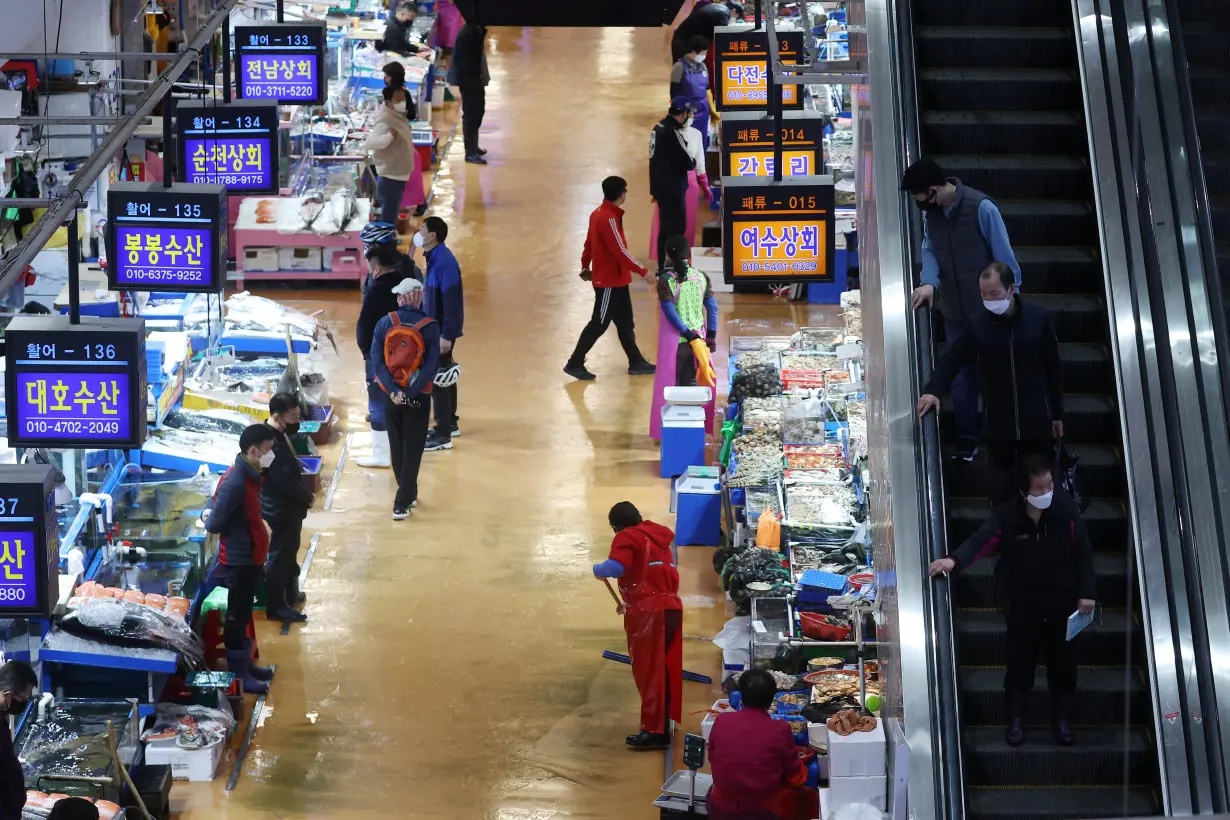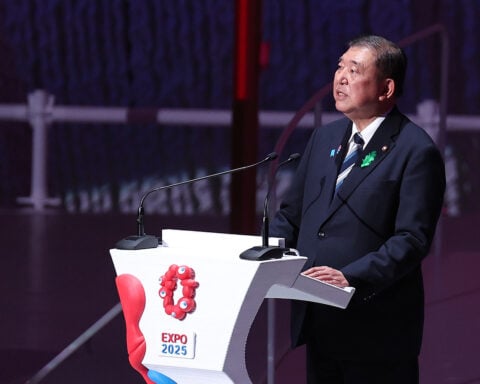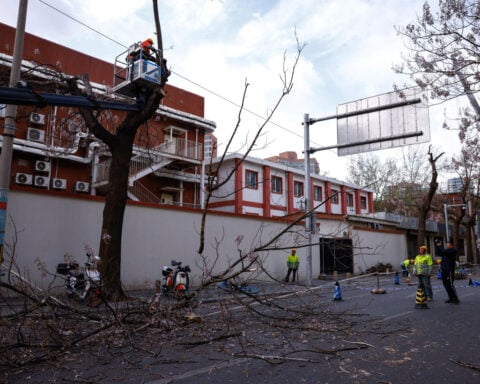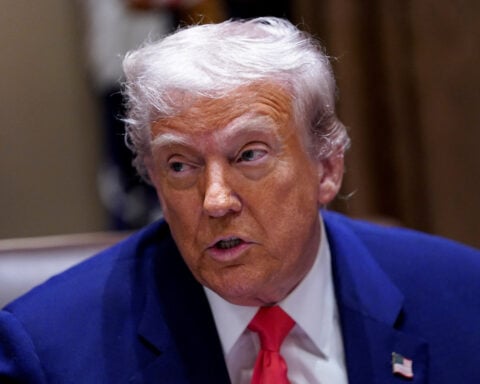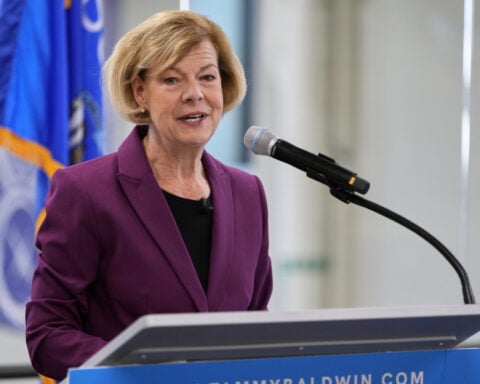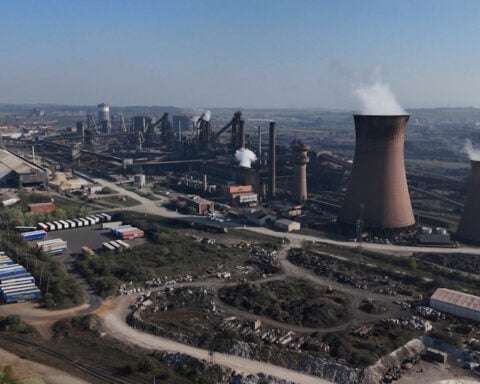By Cynthia Kim
SEOUL (Reuters) -South Korea's economy unexpectedly shrank in the second quarter, clocking the sharpest contraction since 2022 as slumping consumer spending undermined an export boom, reinforcing expectations that an interest rate cut could be imminent.
Gross domestic product (GDP) for the April-June period fell 0.2% from a quarter earlier in seasonally adjusted terms, data from the Bank of Korea showed, missing a 0.1% gain seen by analysts in a Reuters poll. It was the sharpest fall since the fourth quarter of 2022.
The weak data, along with easing consumer price pressures seen in June, increases calls for the BOK to cut interest rates as soon as next month, some analysts say.
The central bank left its key interest rate unchanged at a 15-year high of 3.50% this month and flagged the prospect of a policy pivot as price pressures abated.
Capital Economics said the data suggests domestic demand will only worsen.
"The weakness of the latest GDP figures give us more confidence in our view that interest rate cuts are around the corner," Capital Economics said in a note. "While we expect the central bank to loosen policy starting from October, the risk of a rate cut in August has risen now."
Other analysts, however, say the BOK will not deliver a rate cut until next quarter, choosing instead to wait for the U.S. Federal Reserve to move first. Markets are currently fully pricing in a Fed rate cut in September.
The Korean won <KRW=KFTC > was down 0.45% against the dollar at 0153 GMT while the benchmark KOSPI stock index was down 1.9% amid a broad selloff in Asia.
The performance follows a 1.3% expansion seen in the first quarter, the fastest pace since the fourth quarter of 2021, and keeps Asia's fourth-largest economy on course to hit the bank's projection of a 2.5% growth this year, said Shin Seung-chul, head of the bank's statistics bureau at a news conference.
On an annual basis, Asia's fourth-largest economy grew 2.3%, compared with a gain of 3.3% in the first quarter of 2024.
Both private consumption and construction investment declined 0.2% and 1.1% from a quarter earlier, respectively, while exports increased 0.9%.
For Corporate Korea, a two-speed economy has emerged with weak domestic demand countering strong offshore appetite for some of the factory superpower's exports.
As an example, Hyundai Motor Co.'s auto sales in South Korea slumped 10% in the second quarter, although it enjoyed good business in the U.S., its largest market.
Despite the weakness, other analysts said there were still risks around rate cuts policymakers needed to consider.
Citigroup economist Kim Jin-wook, who expected the economy to contract 0.3% on-quarter, said he still sees the BOK cutting interest rates in October but that rising home prices pose hawkish risk to that view.
"On monetary policy, we believe hawkish risk factors from rising housing prices in Seoul area to outweigh dovish risk factors," he said. "It will take some time for the housing market to stabilise again so an October cut is likely."
(Reporting by Cynthia Kim, Additional reporting by Heekyong Yang; Editing by Jacqueline Wong and Sam Holmes)

 Trump has begun another trade war. Here's a timeline of how we got here
Trump has begun another trade war. Here's a timeline of how we got here
 Canada's leader laments lost friendship with US in town that sheltered stranded Americans after 9/11
Canada's leader laments lost friendship with US in town that sheltered stranded Americans after 9/11
 Chinese EV giant BYD's fourth-quarter profit leaps 73%
Chinese EV giant BYD's fourth-quarter profit leaps 73%
 You're an American in another land? Prepare to talk about the why and how of Trump 2.0
You're an American in another land? Prepare to talk about the why and how of Trump 2.0
 Chalk talk: Star power, top teams and No. 5 seeds headline the women's March Madness Sweet 16
Chalk talk: Star power, top teams and No. 5 seeds headline the women's March Madness Sweet 16
 Purdue returns to Sweet 16 with 76-62 win over McNeese in March Madness
Purdue returns to Sweet 16 with 76-62 win over McNeese in March Madness
